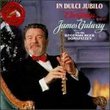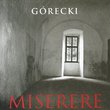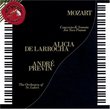| All Artists: Herbert Howells, Paul Spicer, Lumsden, Finzi Singers Title: Herbert Howells: Choral Works Members Wishing: 0 Total Copies: 0 Label: Chandos Release Date: 6/18/1996 Genres: Pop, Classical Styles: Vocal Pop, Opera & Classical Vocal Number of Discs: 1 SwapaCD Credits: 1 UPC: 095115945827 |
Search - Herbert Howells, Paul Spicer, Lumsden :: Herbert Howells: Choral Works
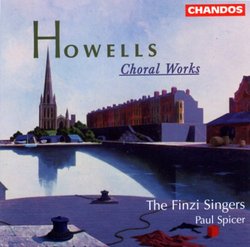 | Herbert Howells, Paul Spicer, Lumsden Herbert Howells: Choral Works Genres: Pop, Classical
|
Larger Image |
CD DetailsSimilar CDs
Similarly Requested CDs
|
CD ReviewsLess than stellar, but worth a look for Howells devotees Mark Swinton | 08/20/2001 (3 out of 5 stars) "Whilst I have often had nothing but praise for the Finzi Singers in past reviews here, I must admit that this disc has me somewhat disappointed. Paul Spicer was once a student of Herbert Howells, so one would expect his choir to be somewhat more on top of the music than they are here. Several of the unaccompanied tracks on this disc go noticeably flat, which makes for an uneven sequence if listening to the whole programme in one go. Ensemble also seems to be a bit of a problem in one or two instances - the closing cadence of "Here is the little door" being a case in point. Certainly, I can think of better recordings of the "Three Carol Anthems" than this, as indeed I can think of better recordings by the Finzi Singers.
However, lest that puts all but the most ardent of Howells devotees off, I must add that the disc still has much to commend it. It's only a little over an hour of playing time, but the producers have filled that hour with many rare works, including a number of world premiere recordings and (in the case of "Blessed are the dead") one item that had never even been performed before. Indeed, of the programme only the first items will be familiar to lovers of cathedral music: "Behold, O God our defender" was written as an introit for the Coronation in 1953 and remains one of Howells' most quintessential anthems. Also quintessential are the aforementioned "Three Carol Anthems" - "Here is the little door," "Sing Lullaby" and "A Spotless Rose," all of which are repeatedly and deservedly referred to as gems, being wonderfully evocative of their texts and prime examples of Howells' unique musical language as it was newly evolving in the early part of the last century. The other works represent the composer equally well, but also show him treading into less frequently-heard territories of his output, and for that matter into less familiar geographical surroundings. For instance, the spine-chilling "Te Deum" for choir and organ presented here was not written for a cathedral or collegiate choir (as were so many of Howells' more familiar canticle settings) but for a parish church - St. Mary's, Radcliffe, near Bristol. As explained in the liner notes, this church had special associations for Howells, who was sometimes taken there by his father. The unfinished motet "Blessed are the dead" (heard here in a completion by Patrick Russill, who has edited much of Howells' early music for publication in recent years) was begun in tribute to the death of the elder Howells; it contains some tender moments but is sadly let down by poor tuning. Equally tender and emotional, but much better performed, is the semi-secular partsong "The Scribe," written as a tribute to the 80 year old Vaughan Williams, a musical role-model and friend to Howells from the beginning of the latter's compositional career. Howells' contribution to the Coronation has already been mentioned; also on the disc is "Inheritance," his contribution to "A Garland for the Queen" which was premiered alongside similar works by Tippet, Bliss, Finzi and others on the day before the Coronation. There are numerous settings of "God is gone up" in existence; Howells' is, I suspect, the least frequently performed in comparison with those by Finzi and William Croft, so it is good to have it in this collection. Finally, "Haec Dies" is worth a mention as it complements an earlier Finzi Singers recording of Howells' music, which included all the other works written by the young composer for the fledgling Choir of Westminster Cathedral. All in all, a fine programme that is worth exploring if you're prepared to overlook some (admittedly unusual) blights in the performance." |

 Track Listings (12) - Disc #1
Track Listings (12) - Disc #1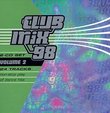

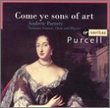
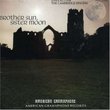

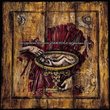


![Across The Universe [Deluxe Edition]](https://nationalbookswap.com/cd//m/51/1251/1241251.jpg)
